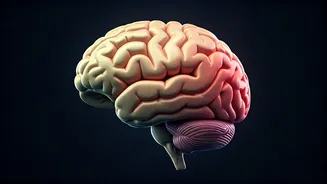Decoding Sleep Patterns
The journey to understanding sleep begins with recognizing that not all sleep is created equal. The article's core message emphasizes that self-awareness
is key when it comes to understanding how we slumber. The article categorizes sleep habits into distinct profiles, each with unique characteristics and consequences. By identifying your own sleep pattern, you can take meaningful steps towards improving your rest and, by extension, your daytime functioning. This knowledge empowers you to tailor your habits and seek professional guidance when necessary.
The Poor Sleepers
Poor sleepers often find themselves in a frustrating cycle of sleeplessness. They struggle to fall asleep initially or may wake frequently during the night. Elevated levels of anxiety and depression frequently accompany this sleep disturbance. These individuals may also experience noticeable daytime impairments, such as difficulty concentrating, irritability, and decreased productivity. This group of people should consult a professional as soon as possible because these symptoms can affect their daily life and impact their overall well-being. Recognizing these symptoms is the first step towards managing and improving sleep quality.
Short Sleepers' Habits
Short sleepers consistently clock fewer hours of sleep than the recommended amount. They might feel fine in the short term, but consistently skimping on sleep can have detrimental effects. This habit is linked to cognitive decline and memory issues. Individuals in this category may also be more likely to engage in riskier behaviors. Prioritizing adequate sleep is vital for short sleepers to mitigate these adverse outcomes. This involves establishing a consistent sleep schedule and creating a sleep-friendly environment.
Disturbed Sleepers' Problems
Disturbed sleepers experience disruptions throughout the night. Waking frequently can be due to various factors, including pain, alcohol consumption, or other underlying health conditions. This fragmented sleep pattern negatively impacts emotional processing and memory consolidation. This group is likely to have problems with how their brain functions and this will directly affect their memory and the way they feel. Therefore, they should consult a professional and get the proper medication and the treatment necessary to solve their problem.
Sleep Aid Users
Sleep aid users rely on medications or other aids to help them sleep. While they may appear to function relatively well during the day, their brain activity patterns differ from those who achieve natural sleep. This highlights the importance of addressing the root cause of sleep problems. Long-term reliance on sleep aids can sometimes mask underlying issues. If you fall into this category, understanding these subtleties is crucial for optimizing sleep and overall health. Consulting with a healthcare provider is essential to determine the best approach for managing sleep disturbances.
Resilient Sleepers Defined
The Sleep Resilient group demonstrates an ability to maintain relatively good sleep quality, even amid stress or attention challenges. This resilience suggests that these individuals have developed robust coping mechanisms. Whether it's the ability to shrug off the stresses of the day or simply good sleep hygiene, these people often manage to keep a good night's rest. Their success underscores the importance of learning effective strategies for managing stress and establishing healthy sleep habits. Identifying and adopting these practices can significantly enhance sleep quality and promote overall well-being.
Putting Knowledge to Use
Knowing your sleep profile isn't about creating a label. Instead, it's a tool to empower you. Use this knowledge to customize your sleep habits, seek professional assistance when needed, and prioritize your mental health. This understanding allows you to make informed decisions about your sleep habits. This may involve adjusting your bedtime routine, creating a relaxing sleep environment, or consulting with a healthcare professional. Ultimately, the goal is to cultivate better rest and support your overall well-being. Take action to improve your quality of life.




















